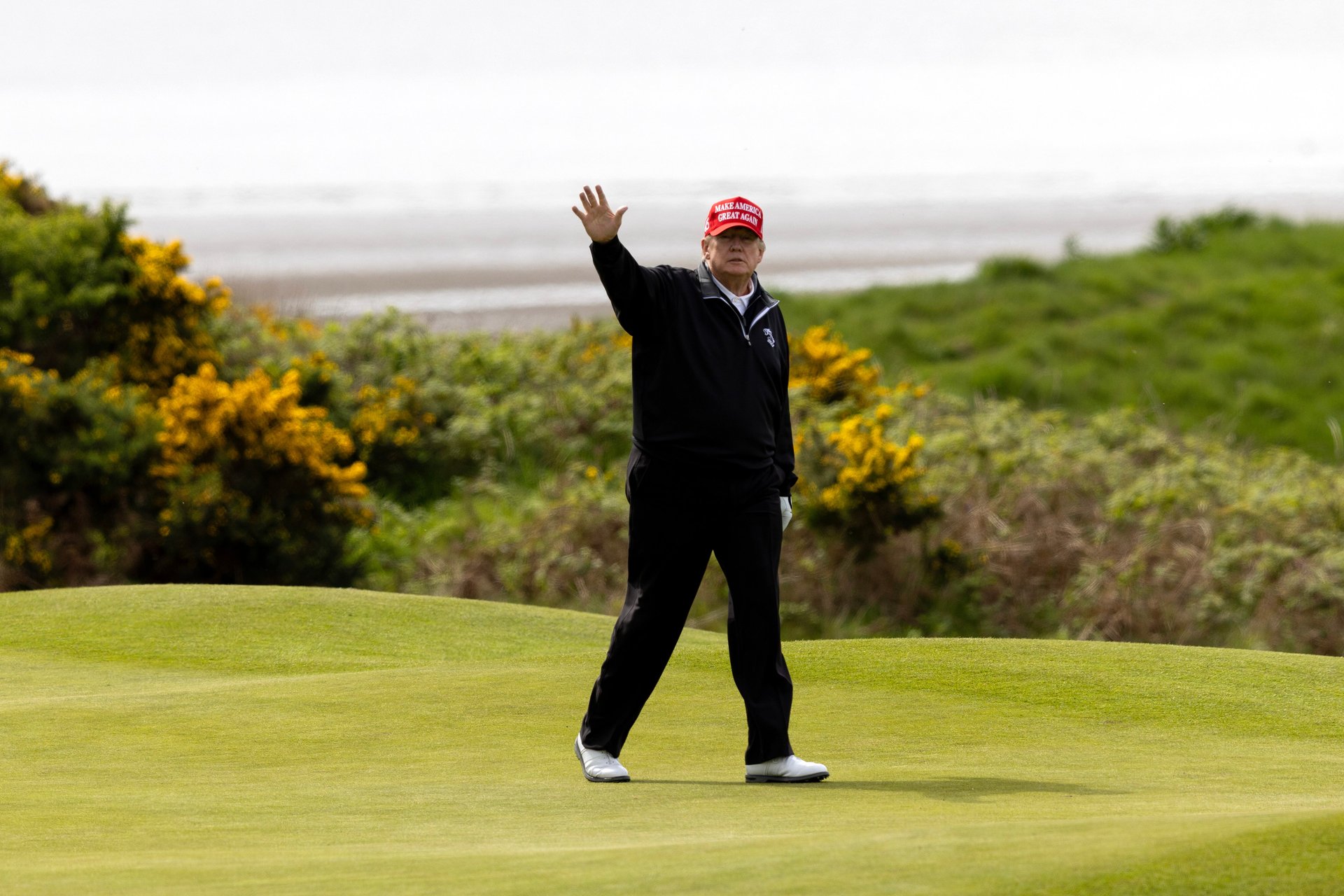Vietnam approves a $1.5 billion Trump golf resort project as tariff talks loom
Vietnam could be looking to get favorable trade terms as it faces a 46% reciprocal tariff set to take effect in July

As trade tensions between Washington and Hanoi escalate, Vietnam has approved a $1.5 billion investment from the Trump Organization to build golf courses, hotels, and real estate — in a move that might be as much about economics as it is about optics.
Suggested Reading
The investment’s approval comes as the U.S. ramps up pressure over Vietnam’s trade surplus and its alleged role in facilitating backdoor access for Chinese goods to enter American markets.
Related Content
Vietnam, the largest U.S. trading partner in Southeast Asia, has long been a focal point of President Donald Trump’s tariff push.
The U.S. trade deficit with Vietnam soared to $123 billion in 2024, fueled by a flood of imports — many assembled in Vietnam using Chinese components. In April, Trump unveiled his “reciprocal tariffs” initiative, targeting 180 countries with steep new levies. Vietnam was hit with one of the harshest penalties: a 46% tariff, scheduled to take effect in July. The U.S. is Vietnam’s largest export market.
The Trump administration warned Vietnam on Friday that its trade surplus with America is “unsustainable” and a serious concern, according to Vietnamese state media, and Washington demanded tougher enforcement against transshipment and other trade violations. In response, Vietnamese officials have offered to cut tariffs on U.S. goods, increase American imports (especially in high-tech sectors), and purchase U.S. fighter jets and agricultural products.
Now, the Trump Organization’s big project has entered the picture.
The investment, in partnership with Vietnamese developer Kinhbac City, includes three 18-hole golf courses and a luxury residential complex — what will be the Trump Organization’s largest development in East Asia. The project, covering almost 2,500 acres in northern Vietnam, will also feature commercial zones, resorts, and green spaces. Deputy Prime Minister Tran Hong Ha signed off on the deal earlier this month, according to VN Express.
The project is set to break ground this year, and the first two golf courses are expected to open by mid-2027.
Though the project has been framed as a private investment, Trump has previously praised foreign governments that support his business ventures.
